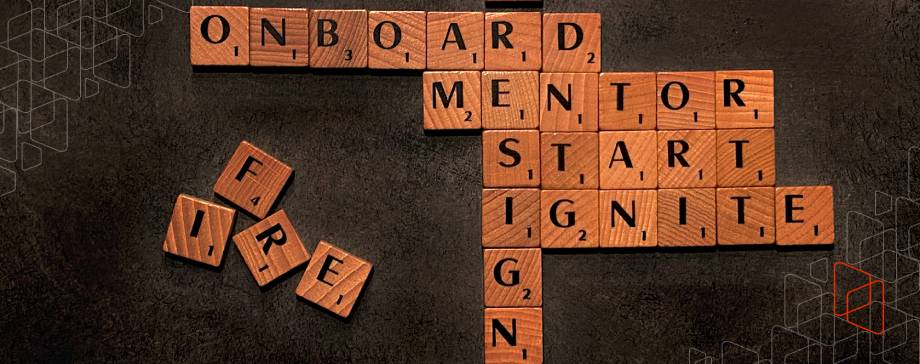Laura Iñiguez, Content Manager at Hirebook
Laura is a content and social media strategist with deep experience in Employee Engagement, People Management, and Culture. She works with Hirebook to bring their innovative best practices to life through content, videos, and webinars seen by thousands around the globe.
Pub: August 19 2021
Upd: May 30 2023
As humans, we like to set goals for ourselves in the search of becoming a better person or having a better life. Professionally speaking, we can have a specific position or business in our minds, and we want to work towards achieving those goals. But as most humans, you probably also feel a little lost and don’t know where to start or what you need to start. Well, worry no more! We’re here to help you out on this quest!
Table of contents:
- Intro
- What are Professional Development Goals?
- What are the Skills I Need to Learn to Increase my Professional Development?
- Professional Development Examples
There’s a popular saying that goes “One never stops learning”. And that has always been true, but more so nowadays that everything moves so fast. Technology changes every day and there are constant breakthroughs in every branch of science that practically force us to keep updating our knowledge and skills. We cannot fall behind.
Success doesn’t happen overnight. The difference between a person who’s continuously advancing professionally and one who is stuck in their career is their ability to set, work and achieve professional development goals.
To know if you’re content with your current professional status, ask yourself the following questions: Are you happy with the way things are right now? Do you know what you’re doing? Are you satisfied with your daily activities and how you complete them? Is your career moving in the right direction? Where do you see yourself in the next 5 years?
If your answers don't make you feel excited about your future, then you might be stuck professionally.
What are Professional Development Goals?
Basically, they are professional goals that trace a map of your career to guide you in the right direction. The purpose of these career goals is to increase your knowledge and skills and be better prepared.
We need to be smart about our future, and knowledge doesn’t always come for free. So make peace with the idea of investing in yourself and enhancing your potential to be a top choice for employers and have a competitive advantage. Once you gather the knowledge and skills, you should demonstrate your competency, for instance by creating an online portfolio. This can only bring you success and provide not only professional but personal development as well; but again, it doesn’t happen overnight. It takes time and a lot of effort.
What are the Skills I Need to Learn to Increase my Professional Development?
-
Written Communication
Written communication skills are necessary for writing emails, chatting with others through instant messaging tools, posting on social media for your business, or completing a project.
-
Leadership
Leadership training helps instill individuals with more confidence, leads to higher-level opportunities and positions in many instances, and is undeniably beneficial to organizations. Leadership skills can be developed through courses, mentoring, apprenticeships, and even on-the-job experience.
-
Organization
Improving your organizational skills can help you be more productive and efficient at work, saving you time and energy to put back into other projects.
-
Creativity
Creative thinking and problem solving are valuable skills to have for both day-to-day work and long-term visions in the workplace.
-
Interpersonal
Interpersonal skills help us communicate and interact with one another, and when done well, these skills help us communicate more effectively and create professional relationships.
-
Conflict Resolution
Risk-free and healthy conflict resolutions are necessary for all work environments, whether you work on a team, interact with clients, or both. Conflicts and disagreements are bound to happen and are a healthy and necessary part of working with others when handled appropriately.
-
Time Management
The better you manage your time, the more effectively you’ll be able to meet deadlines, manage your workload, and keep your stress levels down.
-
Active Listening
Active listening refers to the ability to listen to someone completely, understand what they’re saying, and comprehend their message so that you can recall what they said later. This soft skill will help you increase your value professionally, and comes with many benefits, including connection-building, instilling trust from others, and improving your knowledge base and understanding.
-
Problem Solving
No matter what industry you're familiar with, problems are bound to arise in your job. In your professional path, you'll surely encounter a variety of problems, and for you to overcome them successfully, you need to add problem-solving to your toolkit since it's a very valuable skill. Leadership is defined by your ability to problem solve and keep your entire team aligned and own the solution.
-
Industry Knowledge
Understanding the idiosyncrasies of your industry - and your organization's position within it is critical to any organization's success.
Professional Development Examples
Even though your goals should be tailored to your personal aims, we’ve put together 8 examples to give you an idea of career goals you can work towards. When setting professional development goals, it is vastly recommended to use the SMART goals framework to make it easier for you to accomplish those targets you’re striving for.
-
Complete Leadership Training Before the End of the Quarter
Like we said before, one never stops learning! And since knowledge is power, we strongly encourage you to find new skills to learn and master, especially ones that fit your position and will make you better at your job or are required for those positions you aspire to get. In this regard, consider using tools like a screen monitoring software to track your efficiency.
Investing time to learn new skills will improve your worth and place you ahead of your colleagues. You’ll have more accomplishments to razzle-dazzle your resume with, and even create a stand-out cover letter, allowing you to land better jobs or start your own business.
-
Take on More Responsibilities at Work
Always try to go the extra mile instead of just doing what’s in your job description. If you take on more managerial responsibilities you’ll get noticed and this will provide you with a stepping stone into leadership positions. Ask your manager what are those areas of opportunity you need to work on and which extra responsibilities you can assume to improve them.
You can also just evaluate what are those little things that everyone complains about and step up and take care of them. Doing tasks that no one else is willing to do will put you in the spotlight, give you a lot of recognition and shape your leadership skills for future roles. Also, it will definitely look great on your next performance review.
-
Improve Public Speaking by the End of the Year
If you’re interested in growing professionally, you definitely cannot afford to have stage fright. As you develop your career, you’re often going to find yourself doing from daily stand-up meetings to presentations, giving pep talks, and building relationships. Great public speaking skills allow you to engage and communicate successfully with your audience (well, in this case, your team!), and to motivate and inspire those around you.
-
Learn the New Version of [Software] by Next Month
Since technology moves so fast, new versions and improvements of everything appear every day. In this specific matter, if there are certain tools you need for your career goals and professional development, you cannot stop updating your knowledge on them. Set a specific time frame for you to update your digital skills every time you need to do so, and be consistent.
-
Learn Stress Management Techniques
Stress management is something we all need to learn to benefit our well-being. But for professional development and for an aspiring leader, it will give you the tools to manage conflict resolution and problem solving in the most efficient way. You’ll learn how to solve situations with a clear head and help others whenever they feel overwhelmed or stuck with a project or task.
-
Attend a Convention in my Industry Next Year
Conventions are a great way to get to know everything about your professional path and other people’s points of view regarding your interests. You can see how your competitors are doing and what they’re focusing on, what your organization is missing, or how you could learn from others. Not to mention the outstanding amount of interpersonal and professional relationships you can make that can help lift your career.
And there you have it. Deciding on your career goals is the first step to begin developing both personally and professionally. Write your goals down somewhere visible so you can constantly motivate yourself and hold yourself accountable. This will increase your chances of success.
If you’re a manager, we strongly recommend having development conversations with your team and helping them establish development goals and work towards achieving them. Using a tool like Hirebook allows you to keep track of their objectives, their progress and have useful conversations, resulting in great engagement and performance.
- Relevant
- Recent
- Topics
- Archive
- April 2023 (1)
- March 2023 (1)
- June 2022 (1)
- May 2022 (3)
- April 2022 (3)
- March 2022 (5)
- February 2022 (2)
- January 2022 (3)
- December 2021 (3)
- November 2021 (4)
- October 2021 (5)
- September 2021 (8)
- August 2021 (7)
- July 2021 (2)
- June 2021 (3)
- May 2021 (5)
- April 2021 (8)
- March 2021 (4)
- February 2021 (3)
- January 2021 (3)
- December 2020 (6)
- November 2020 (9)
- October 2020 (1)
- September 2020 (5)
- August 2020 (4)
- July 2020 (1)
Discover More Hirebook Posts


.jpg)







